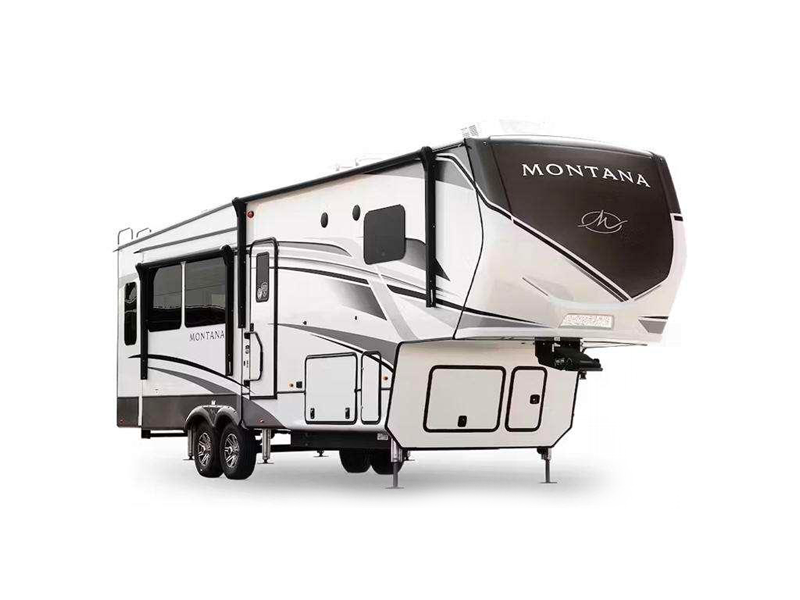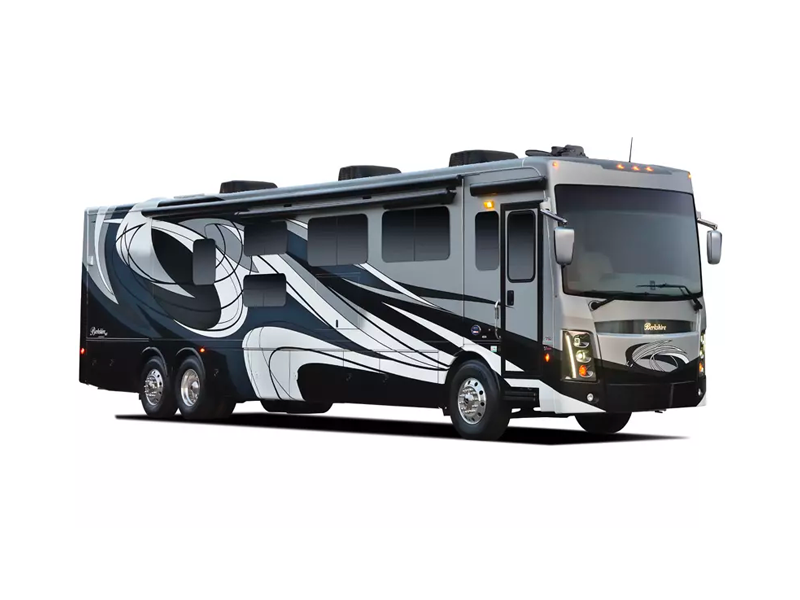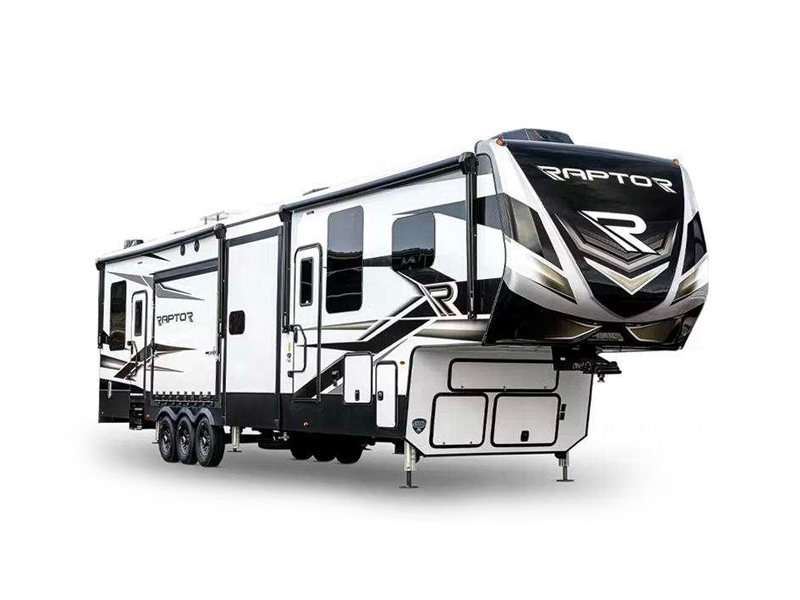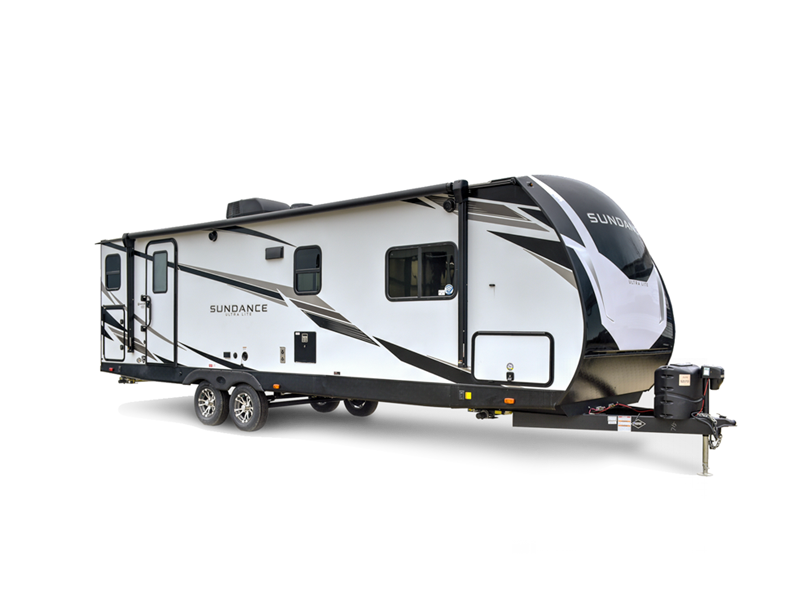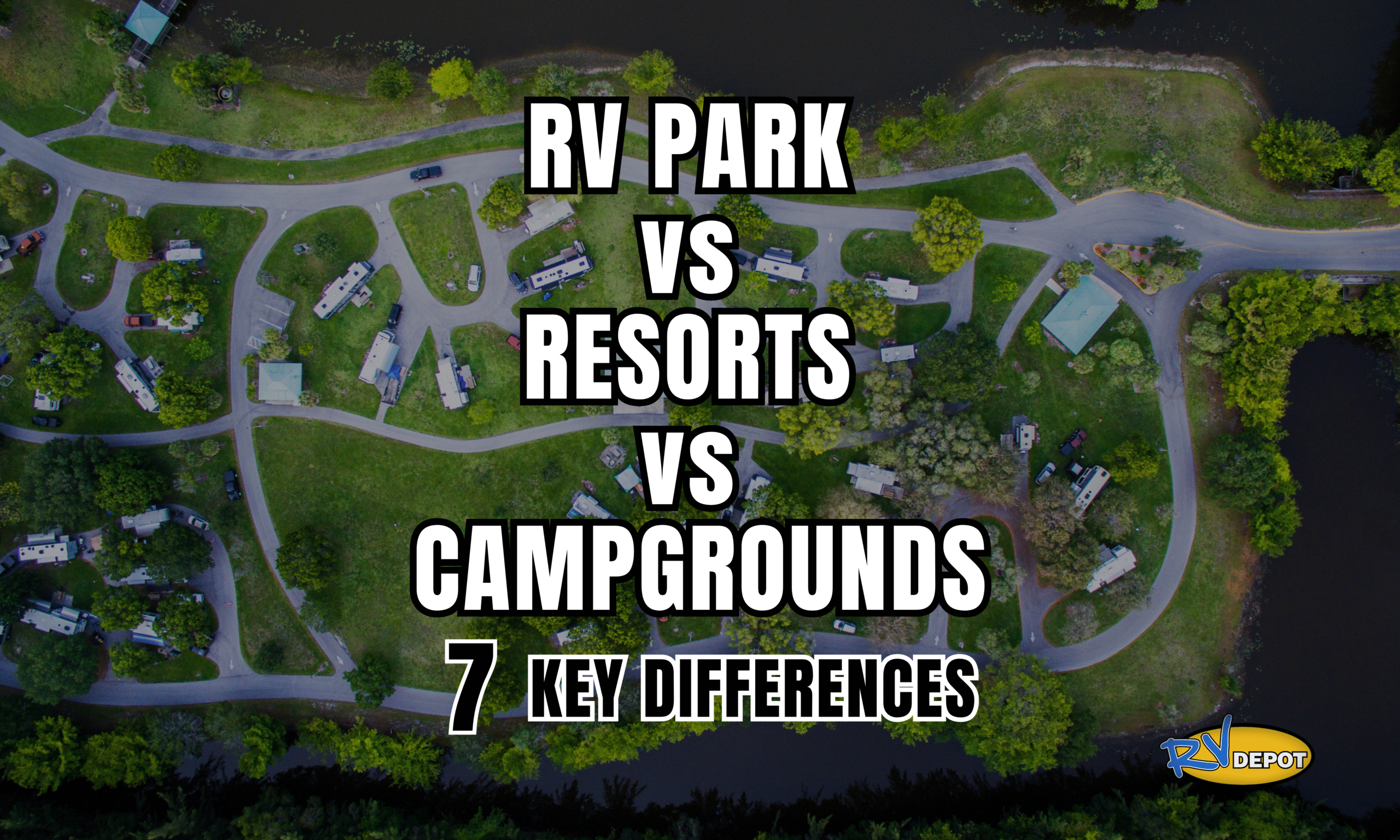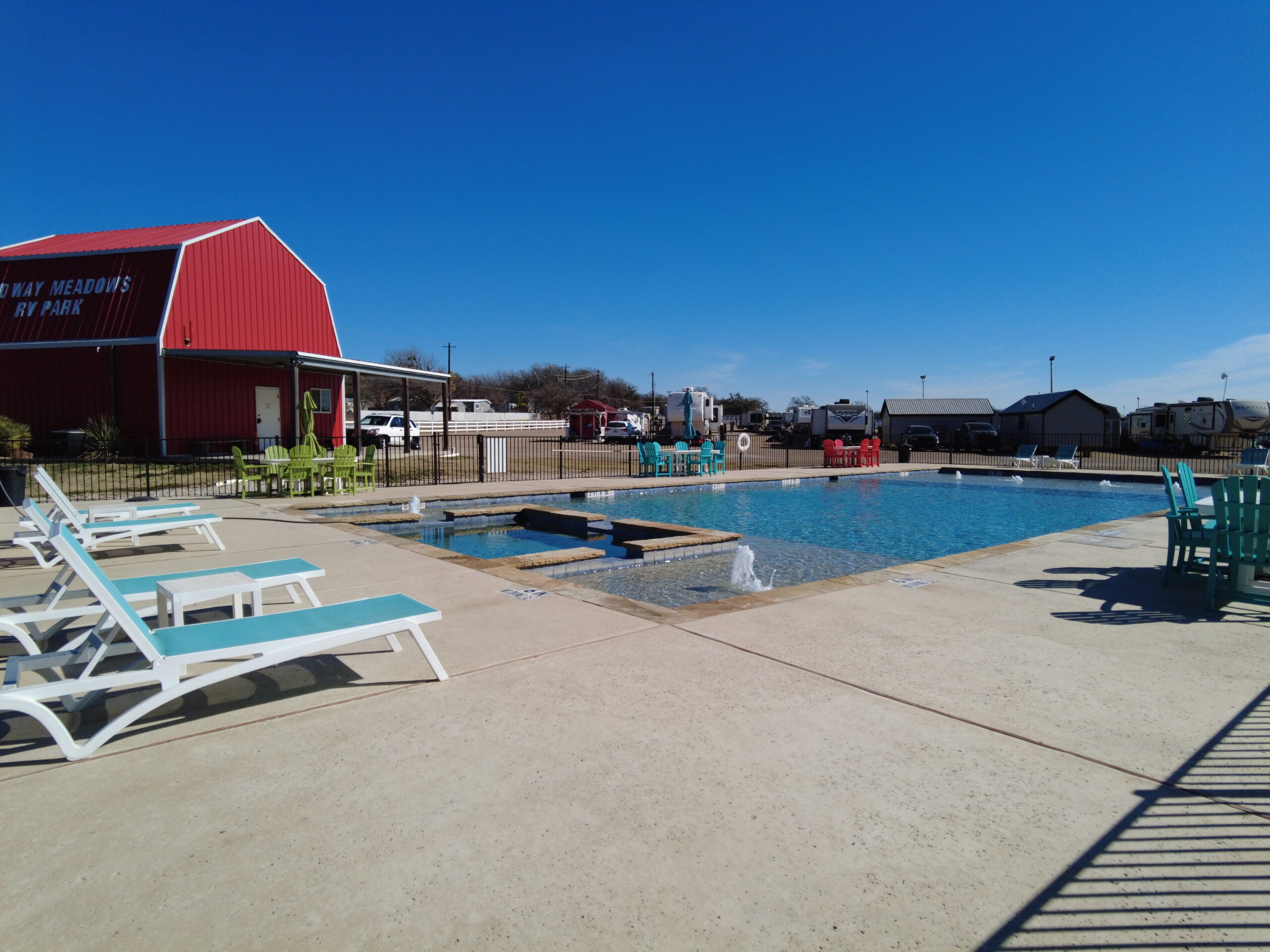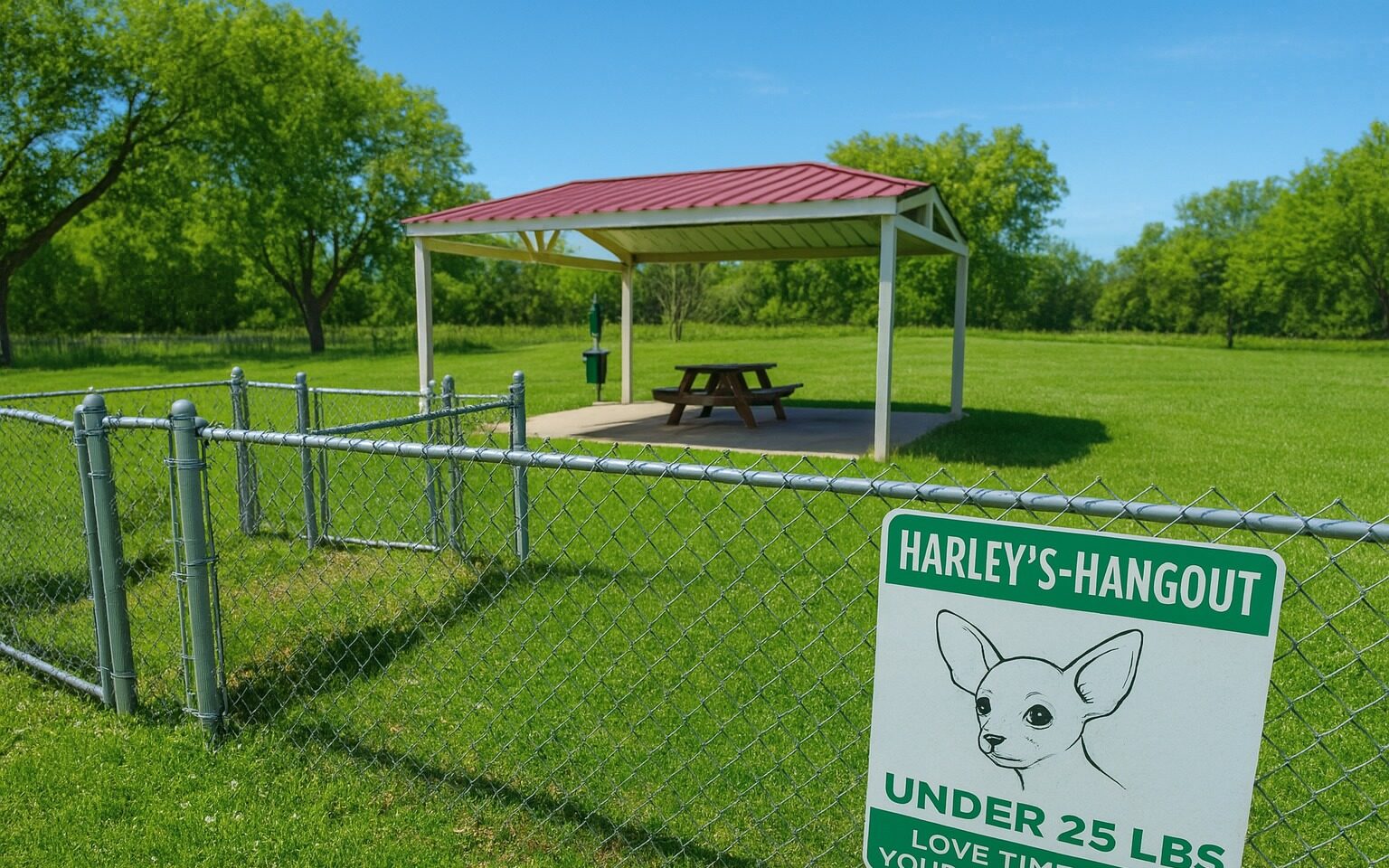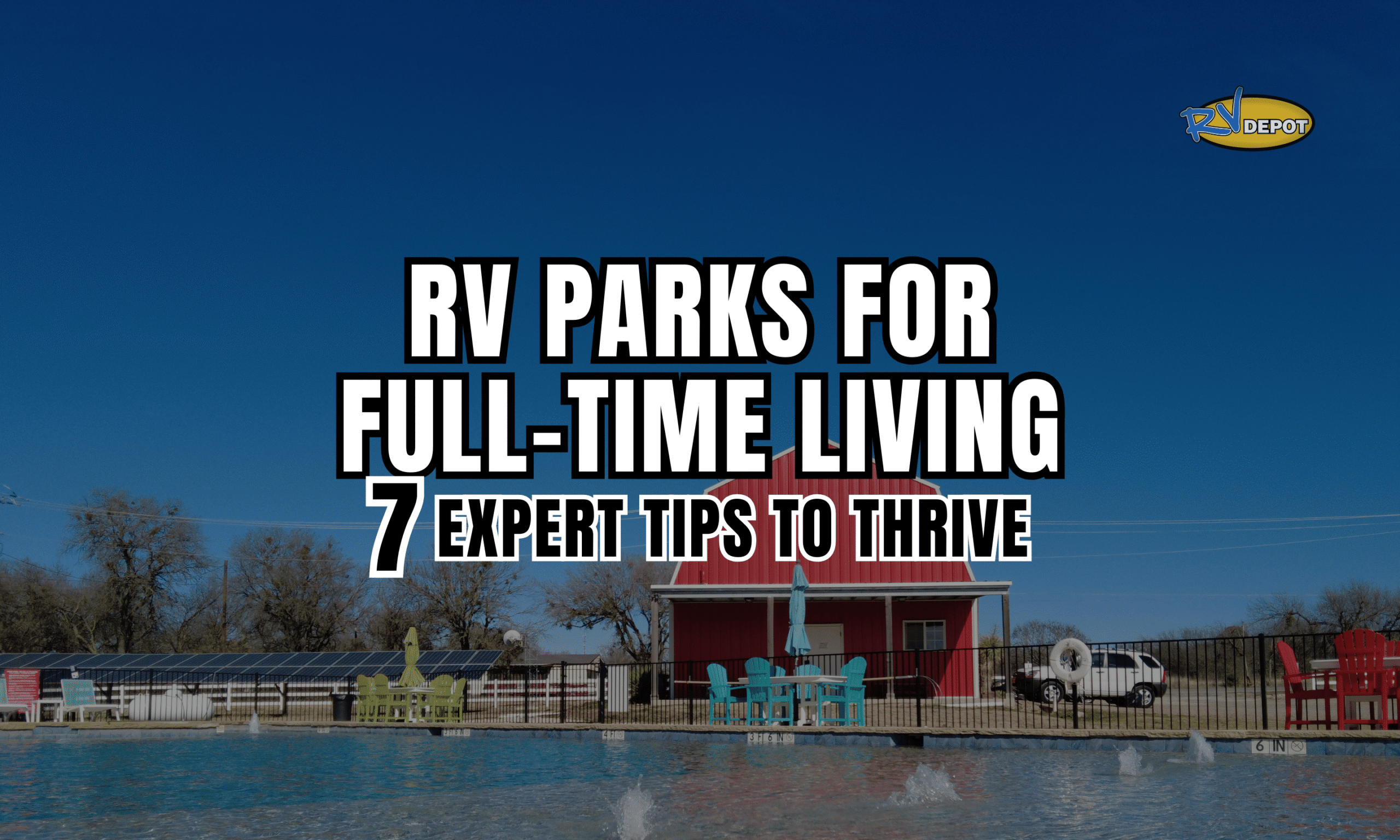Standing in front of your RV with keys in hand, you’re not planning a vacation—you’re looking for a place to call home. Understanding the differences between RV parks vs resorts vs campgrounds becomes crucial when you’re choosing where to live, not just where to stay for a weekend. The wrong choice can mean struggling with inadequate utilities, unexpected costs, or rules that make daily life difficult.
Here’s what most people transitioning to full-time RV living don’t realize: These three types of facilities cater to completely different needs, and what works for vacationers often fails for full-time residents. That “resort” might charge extra for extended stays, the “campground” might close for winter, and the “park” might have everything you need at a price you can afford.
At RV Depot in Cleburne, Texas, we’ve helped thousands of families transition from traditional housing to RV living. Through their experiences, we’ve learned which factors matter most when comparing RV parks vs resorts vs campgrounds for permanent residence. The differences go far beyond amenities—they affect your monthly budget, quality of life, and ability to maintain stable housing.
The Reality of Full-Time RV Living Locations
The RV industry traditionally focused on recreational travelers, but today’s reality is different. Millions of Americans now live in RVs full-time, escaping high rent, rebuilding after financial challenges, or choosing a simpler lifestyle. This shift has changed how we need to evaluate RV parks vs resorts vs campgrounds.
What Full-Timers Actually Need:
- Year-round availability (many facilities close seasonally)
- Reasonable monthly rates (not inflated nightly pricing)
- Reliable utilities for daily living
- Mail delivery and package acceptance
- Proximity to work, schools, and services
- Community acceptance of permanent residents
The Hidden Challenges:
- Some facilities prohibit stays over 14-30 days
- Others charge premium rates for extended stays
- Many lack infrastructure for year-round living
- Rules often favor short-term guests over residents
- Limited options in areas with good job markets
Understanding Your Options: RV Parks vs Resorts vs Campgrounds
RV Parks: The Practical Choice for Full-Time Living
Traditional RV parks often provide the best balance of affordability and functionality for permanent residents. Unlike their vacation-focused counterparts, many RV parks understand and cater to full-time RVers.
Typical RV Park Features for Full-Timers:
| Feature | What You Get | Monthly Cost Impact |
|---|---|---|
| Basic utilities | 30/50 amp electric, water, sewer | $400-600 base |
| Extended stay rates | Significant monthly discounts | 40-60% savings |
| Mail service | Address use, package acceptance | Often included |
| Laundry facilities | On-site machines | $40-60/month |
| Location | Near towns, work opportunities | Gas savings |
Real Monthly Costs at RV Parks:
- Small town/rural: $400-600/month all-in
- Suburban locations: $600-900/month
- Urban/high desirable areas: $900-1,400/month
Why RV Parks Work for Full-Time Living:
- Designed for extended stays
- Understand full-timer needs
- Flexible payment arrangements
- Less restrictive rules
- Working-class community
Potential Drawbacks:
- Basic aesthetics (not always “resort”-pretty)
- Mixed condition of facilities
- Limited recreational amenities
- Potential for transient neighbors
- Variable management quality
Best For:
- Budget-conscious families
- Working individuals needing stability
- Those prioritizing function over form
- People rebuilding financially
- Minimal lifestyle advocates
RV Resorts: The Expensive Reality
RV resorts sound appealing, but their focus on vacation luxury often makes them impractical for full-time living. Understanding how RV parks vs resorts vs campgrounds differ in cost becomes critical here.
Typical RV Resort Challenges for Full-Timers:
Costs That Add Up:
- Base monthly rate: $1,500-3,000+
- Amenity fees: $100-300/month extra
- Guest fees: $10-20/day for visitors
- Activity fees: Not optional, still charged
- Premium for “residential” sites
The Resort Lifestyle Reality: You’re paying for pools you use rarely, restaurants you can’t afford daily, and activities designed for retirees with disposable income. That $2,000/month could rent a nice apartment—defeating the purpose of RV living for affordability.
Hidden Issues:
- Maximum stay limits (even at monthly rates)
- Preference given to short-term guests
- Strict appearance rules for RVs
- Age restrictions on older RVs
- Social pressure to participate/spend
When Resorts Might Work:
- Retirement with solid finances
- Seasonal work in resort areas
- Short-term transitional housing
- Special circumstances requiring amenities
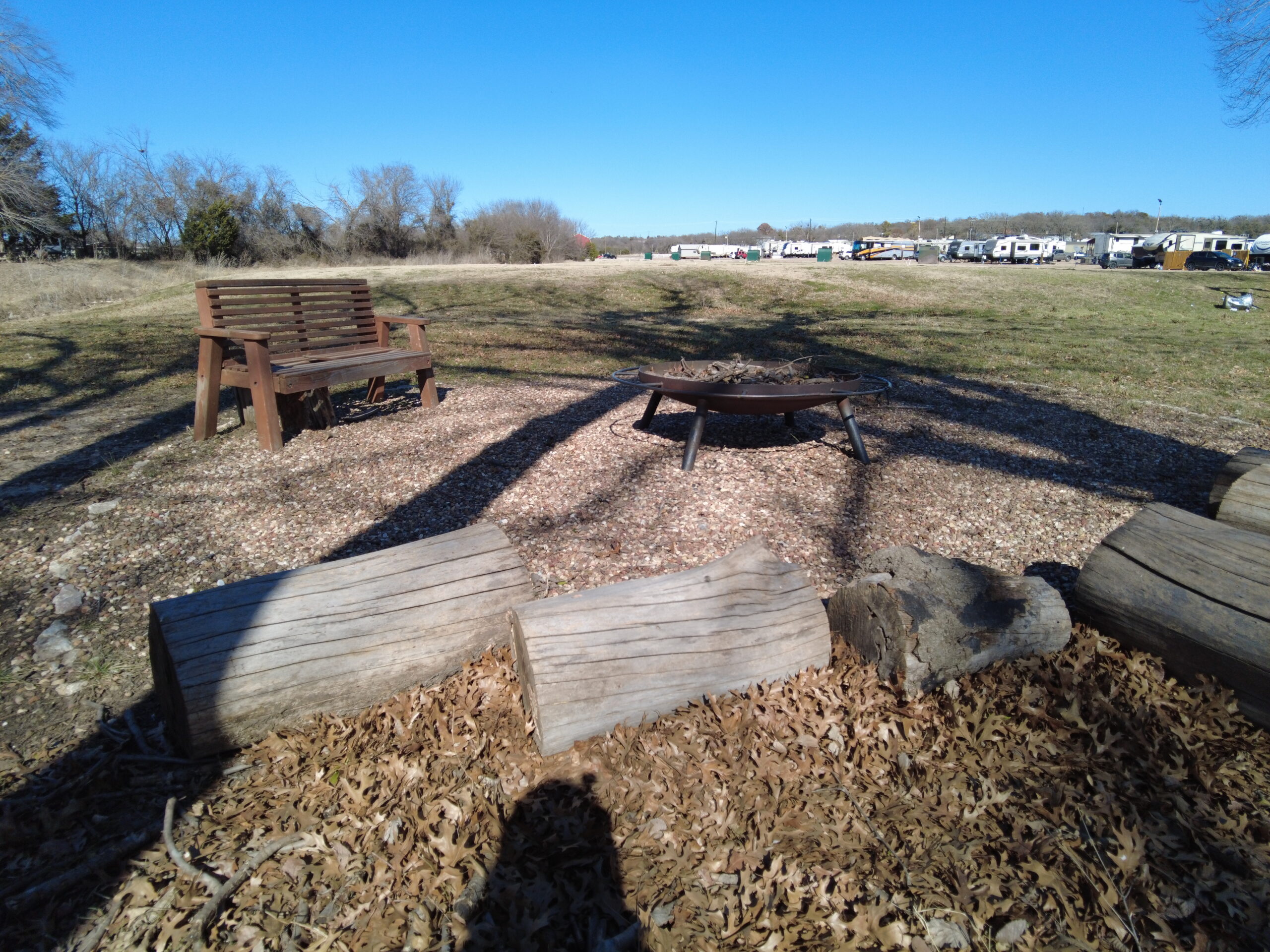
RV Campgrounds: The Seasonal Challenge
Campgrounds in natural settings seem idyllic, but most create significant challenges for full-time residents. When comparing RV parks vs resorts vs campgrounds, campgrounds often fall short for permanent living.
Why Campgrounds Struggle for Full-Time Living:
Infrastructure Limitations:
- Limited or no sewer hookups
- 30-amp electric only (insufficient for daily living)
- Water systems designed for seasonal use
- No mail delivery or address use
- Minimal internet/cell service
Seasonal Realities:
- Many close October-April
- Winterization required in cold months
- Primitive facilities (vault toilets, no showers)
- Weather-dependent access roads
- Isolation from services and employment
Regulatory Issues:
- 14-day maximum stays enforced
- Designed for recreation, not residence
- Ranger enforcement of camping limits
- No legal address establishment
- Prohibited “residential” setups
When Campgrounds Work:
- Summer seasonal employment
- Transitional housing with backup plan
- Work-camping positions
- Couples/individuals with minimal needs
Real Cost Comparisons for Full-Time Living
Let’s break down actual monthly expenses across RV parks vs resorts vs campgrounds:
Budget Reality for a Family of Four:
RV Park Monthly Expenses:
- Site rent with utilities: $600
- Laundry: $60
- Internet (if extra): $50
- Propane: $40
- Total: $750/month
RV Resort Monthly Expenses:
- Site rent: $2,000
- Mandatory amenity fee: $200
- Premium internet: $100
- Guest fees for kids’ friends: $150
- Total: $2,450/month
RV Campground (When Available):
- Site fee: $450
- Dump station fees: $60
- Water hauling: $40
- Generator fuel: $150
- Laundromat trips: $100
- Total: $800/month (plus hassle)
Hidden Costs by Location Type:
| Cost Factor | RV Parks | RV Resorts | RV Campgrounds |
|---|---|---|---|
| Expense Predictability | Predictable monthly expenses | Constant upselling pressure | Transportation costs to services |
| What’s Included | Utilities included in rent | Social spending expectations | Equipment for primitive camping |
| Additional Fees | Minimal surprise fees | Premium pricing for everything | Backup housing during closures |
| Other Considerations | Local services nearby | Mandatory “community fees” | Wear on RV from generator use |
Finding the Right Location for Your Situation
Different life situations require different approaches to RV parks vs resorts vs campgrounds:
For Working Families:
Best Choice: RV Parks
- Proximity to schools and jobs
- Stable monthly pricing
- Kid-friendly environments
- Reasonable guest policies
- Year-round availability
What to Look For:
- School bus routes
- Quiet hours enforcement
- Family-oriented community
- Playground/safe areas for kids
- Monthly payment options
For Remote Workers:
Best Choice: RV Parks with Infrastructure
- Reliable internet crucial
- Quiet spaces for video calls
- Mail handling for business
- Professional appearance maintained
- Stable address for business
Key Requirements:
- Dedicated internet (not shared Wi-Fi)
- Cell tower proximity
- Package receiving
- 50-amp service for equipment
- Workspace potential
For Retirees:
Options Vary by Budget:
- Fixed income: Basic RV parks
- Comfortable retirement: Nice RV parks
- Affluent retirement: RV resorts
- Social butterflies: Resort communities
- Nature lovers: Seasonal campgrounds
For Transitional Housing:
Most Flexible: RV Parks
- Month-to-month availability
- No long-term commitments
- Understanding management
- Lower move-in costs
- Central locations
Red Flags When Evaluating Locations
Regardless of choosing between RV parks vs resorts vs campgrounds, watch for:
Deal Breakers:
- “No full-time residents” policies
- Excessive rules about RV appearance/age
- Unclear pricing structures
- Poor online reviews mentioning management
- No established monthly rates
- Seasonal closure without alternatives
Warning Signs:
- High resident turnover
- Poorly maintained infrastructure
- Unresponsive management
- Hidden fees appearing after move-in
- Restrictive guest policies
- No written lease agreements
Questions to Ask:
- What’s the true monthly cost including everything?
- Are there stay limits for full-time residents?
- How do utilities work in extreme weather?
- What’s the policy on visitors and overnight guests?
- Can I use this address for legal purposes?
- What happens if I need to leave temporarily?
The Unspoken Social Dynamics
Each type of location has distinct social environments affecting daily life:
| Social Aspect | RV Parks | RV Resorts | RV Campgrounds |
|---|---|---|---|
| Community Type | Working-class community | Vacation mindset predominant | Transient community |
| Social Attitudes | Mutual understanding of struggles | Possible stigma for full-timers | Limited social connections |
| Judgment Level | Less judgment about RV condition | Pressure to participate in activities | Self-reliance necessary |
| Neighbor Relations | Helpful neighbor attitudes | Economic disparities visible | Peaceful but lonely |
| Family Environment | Kids playing together | Can feel isolating for families | Not child-friendly long-term |

RV Depot: Supporting Your Full-Time Living Journey
At RV Depot, we understand that choosing between RV parks vs resorts vs campgrounds isn’t about planning vacations—it’s about finding stable, affordable housing. Our experience helping thousands transition to RV living gives us unique insights into what actually works.
We’ve seen families thrive in basic RV parks and struggle in expensive resorts. We’ve watched seasonal workers make campgrounds work and retirees find community in unexpected places. This real-world knowledge helps you avoid costly mistakes.
Making the Right Choice for Your Life
The best choice between RV parks vs resorts vs campgrounds depends entirely on your specific situation—budget, work requirements, family needs, and lifestyle preferences. What matters is finding a location that provides stable, affordable housing while supporting your daily life needs.
Remember: You’re not choosing a vacation spot. You’re choosing a home. The prettiest location means nothing if you can’t afford it monthly or if it doesn’t provide what you need for daily living.
Ready to Find Your RV Home?
Visit RV Depot to explore RVs suited for full-time living and get honest advice about location options:
📍 Visit: 4319 N. Main St, Cleburne, TX 76033 📞 Call: (817) 678-5133 💻 Browse: rvdepottx.com
We’ll help you understand the real differences between RV parks vs resorts vs campgrounds and find the combination of RV and location that makes full-time living work for your family.
Already living full-time? Share your location experiences with our community. Your insights help others make informed decisions about their housing future.

